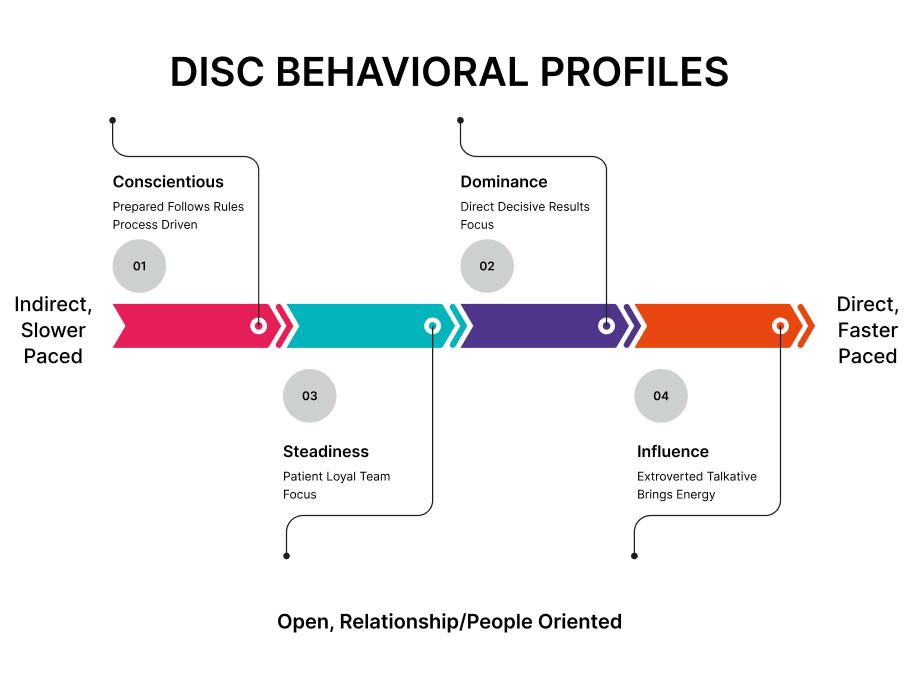
Effective communication is the foundation of any successful business. A report by the Project Management Institute highlights this, revealing that poor communication is responsible for project failure one-third of the time. As George Bernard Shaw aptly said, “The single biggest problem in communication is the illusion that it has taken place.” The manner in which one communicates can profoundly influence their professional success. It is therefore imperative to grasp and master the various business communication styles.
What is a Business Communication Style?
Whether you are leading a team, interacting with clients, or collaborating with colleagues, communication happens in many forms. It’s not just about how much information you know, it’s also about how you transfer it.
A communication style refers to the approach in which individuals convey information. It involves verbal expression such as the tone of your voice and non-verbal cues such as body language.
In the context of a business, understanding your communication style and those of your colleagues and clients is essential to ensure effective interpersonal and professional relationships. Besides recognizing, adaptability is key. You also need to adapt to different business communication styles to enhance mutual understanding, minimize conflicts and enhance collaboration.
What are Different Types of Communication Styles in Business?
Business communication styles vary widely, however, primarily, there are four primary types which are commonly observed in the workplace environment. Let’s have a look at each of them with communication style examples.
Analytical Communication

Analytical communicators rely on logic, data and facts which means they value evidence-based explanations. These are the people who prefer structured, accurate and detailed information. Often, their way of communication follows a methodical approach which is direct, clear and to the point.
How to Identify an Analytical Communicator?
Look for individuals who:
- Ask many questions
Analytical communicators have a curious nature. This means they try to understand a specific situation or matter from all angles. By asking more questions, they tend to gather as much information as possible to clarify details.
- Prefer data-backed decisions
The decisions made by analytical communicators are never based on fiction. Rather they rely on solid facts, reports, and analysis to evaluate options and make informed decisions.
- Perform thorough analysis
These communicators have a strong inclination to break down complex issues into smaller components. They perform a detailed analysis of a problem by meticulously examining information before reaching any conclusion.
- Request detailed information
These communicators appreciate detailed explanations that include numbers and metrics as it satisfies their need for deep understanding.
How to work with an analytical communicator?
- Stay clear and logical in your communication
- Always stick to the facts; do not make vague statements
- Provide detailed data to support your points
- Stay patient and allow them the time to process the information
Example of Analytical Communication Style
Suppose during a team meeting, a colleague, who is an analytical communicator, might say something like “Can you provide facts supporting this strategy? I would like to review the figures before we move towards a decision.”
Intuitive Communication

Intuitive communicators are the ‘big-picture’ thinkers. They often like to over-arch concepts and prefer an innovative, creative, and forward-thinking approach.
How to identify an intuitive communicator?
Look for individuals who:
- Speak in broad terms
Intuitive communicators are more focused on the concept rather than specific details. They often convey their thoughts by using metaphors, analogies and abstract language.
- Look for patterns and general trends rather than specifics
These communicators have a knack for quickly grasping the essence of a situation by identifying underlying patterns and trends.
- Are enthusiastic, imaginative and persuasive
Intuitive communicators have a strong passion and enthusiasm for their ideas. They often inspire others with their vision.
How to work with an intuitive communicator?
- Focus on highlighting the overall vision and key points
- Avoid getting into too many details
- Keep communication to-the-point
- Be receptive to their creative ideas
- Explain your points or concepts using metaphors and analogies
Example of Intuitive Communication
Suppose your team is brainstorming ideas for a new project, and an intuitive communicator might say something like “Let’s step back and look at the bigger picture. How does this decision contribute to our long-term vision?”
Functional Communication

Functional communicators are practical and organized. They value efficiency, clarity and consistency. These individuals appreciate processes, timelines, and step-by-step plans. In essence, they like things done in an organized and systematic manner.
How to identify a functional communicator?
Look for individuals who:
- Are clear, concise and direct in their agendas
Functional communicators are straightforward in their communication style. You won’t find them going into unnecessary details, which makes their messages often well-structured and easy to understand.
- Are good at managing projects and deadlines
These communicators are excellent at planning and organizing things. You give them a huge, complex project and they will simplify it by breaking it down into smaller and manageable tasks. Their sense of time management and commitment to deadlines is quite strong.
- Create detailed plans and checklists
Functional communicators follow a thorough approach when it comes to tasks. They prefer detailed outlines to make sure that nothing slips through the cracks.
How to work with a functional communicator?
- Provide a clear and detailed plan of action
- Strictly adhere to the meeting agenda and deadlines
- Use visual aids like charts, timelines, and pointers to outline key information
- Maintain consistency and follow up diligently on assigned tasks
Example of functional communication
A functional communicator might say “We need to follow the established guidelines to ensure accuracy.”
Or
“It would be better if we could outline the steps needed to complete this project and set a timeline for individual tasks.”
Personal Communication

Personal communicators are empathetic in nature. They value relationships and building connections. They are people-oriented and may often ask others about their personal well-being. Personal communicators prefer active listening and often work to balance team harmony and individual well-being.
Did You Know? “Employees want workplace communication to be more empathic 96% of the time.” Source
How to identify a personal communicator?
Look for individuals who:
- Are warm, friendly and expressive
Being enthusiastic and friendly are the two most prominent traits of personal communicators. They often express their emotions openly and are quite outgoing and approachable.
- Focus on building rapport
These individuals like to invest their time in building strong personal relationships at work. With their empathy towards others, they create a sense of connection.
- Are attentive listeners
Personal communicators excel at active listening. Whether it is verbal interaction or non-verbal interaction, they ensure paying close attention to what others are saying.
- Create a positive team atmosphere
Personal communicators are often good at resolving conflicts among team members and maintaining harmony. This way, they contribute towards creating a positive and supportive work environment.
- Are emotionally more expressive than others
Individuals with personal communication styles are quite open about their feelings and emotions. They like to discuss how they feel regarding a particular situation or matter with others.
How to work with a personal communicator?
- Make use of empathetic language
- Appreciate their contributions
- Encourage a collaborative environment
- Build rapport and genuinely participate to understand their perspective
Example of a personal communicator
A personal communicator might say “ We shall take feedback from everyone in the team about this decision because it is important to ensure that everyone is comfortable with our approach.”
How to Identify Your Communication Style?
Identifying your communication style is an essential step for improving your interpersonal interactions. Here are some effective methods to discover your predominant communication style.
Self-reflection and awareness
You can start by asking yourself these questions:
- How do I typically convey information?
- What is my body language when I communicate?
- How do I respond to criticism or praise?
- What kind of feedback do I usually seek?
- What are the situations in which I feel most comfortable communicating?
Example: If you are a person who often prepares detailed notes and explains things step-by-step, then you have an functional communication style. On the contrary, if you enjoy discussing broad concepts without getting into specifications, then you may have an intuitive communication style.
Pay attention to your language and tone

Observing the language and tone you use to communicate in different scenarios can help you gather significant insights about your business communication style.
Here are some examples for better understanding.
- If your communication style is analytical, then you might say “Let’s review the statistics from last month before we conclude.”
- Those with an intuitive style may say “I’m having a good feeling about where this project will take us in the next two years.”
- If your communication style is functional, then you might say “Can we break down this project into phases and assign tasks for each stage?”
- Those with personal style may say “We should ensure that everyone is comfortable with this decision. Let’s take feedback.”
Identify your preferred communication channels
The medium you choose for communication can also help you understand your style. It is often seen that analytical communicators prefer detailed emails, reports and data presentations. While intuitive ones like quick meeting sessions and informal chats.
In the case of functional communicators, structured meetings and detailed agendas are often preferred. On the contrary, personal communicators enjoy face-to-face meetings and team-building activities.
Seek feedback from others
Requesting feedback from others including your friends, family or colleagues is also a good way to get a well-rounded view of your communication style. They may help you understand aspects that you might overlook sometimes.
You may ask something like this “I’m trying to understand my communication style. Can you share your thoughts about how I interact with others and my approach to sharing information with others?”
You may receive a reply like this “You are quite direct in your communication most of the time.” This indicates an analytical communication style.
Perform communication style assessments
There are various assessments and quizzes that can help you identify your predominant communication style. You can search the internet for professional assessments to get an in-depth analysis. Alternatively, you may consider using online tools as well.

A popular tool is the DISC assessment which categorizes communication styles into 4 categories. You can use this tool to get clues into your communication tendencies.
How do Different Business Communication Styles Impact the Workplace?

From team dynamics to the overall productivity of an organization, different types of business communication styles can impact the workplace in several ways. Let’s understand how each of these primary communication styles can influence the workplace:
Impact of Analytical Communication Style
Positives: Analytical communicators bring clarity with their data-driven approach to projects and decision-making. As they focus on facts and logic, the degree of accuracy and thoroughness is quite high. This is especially invaluable in roles associated with finance, engineering, quality control, and research.
Challenges: Their emphasis on detailed information sometimes leads to slow decision-making or overlooking the bigger picture.
Impact of Intuitive Communication Style
Positives: Intuitive communicators have the ‘big vision’ and creativity which makes them perfect for roles where innovation and strategic thinking is required. Marketing managers, product development managers and people in leadership positions or team motivators can thrive by practicing intuitive communication styles.
Challenges: Intuitive individuals often tend to overlook important details which may result in misunderstandings and errors.
Impact of Functional Communication Style
Positives: Functional communicators with their practical and process-oriented approach ensure that projects are well-organized and executed systematically. They make sure that tasks are executed on time. These individuals are quite valuable in roles such as project management, operations and administration.
Challenges: Their tendency to be less adaptable and more focused on structure can be frustrating for team members who prefer a dynamic approach.
Impact of Personal Communication Style
Positives: Personal communicators have an empathetic and relation-oriented approach which is quite suitable for roles requiring teamwork, customer service and managing human resources.
Challenges: Often personal communicators prioritize relationships over efficiency. This can make them struggle with conflict resolution and making tough decisions.
Importance of Business Communication Styles
Statistics reveal that 97% of workers believe communication impacts daily productivity. Moreover, approximately 70% of workers express they’d get more work done with better communication at their jobs.
Every individual’s communication style contributes to creating a harmonious environment at the workplace. It is therefore essential for you and everyone else to adapt and tailor their communication style or approach to the specific person or audience they’re addressing.
Suppose, you are communicating with an analytical thinker about a business project. In such a scenario, it is best to present information in a structured and data-driven manner. On the other hand, if the person on the other side is a personal communicator, it is better to opt for face-to-face meetings.
To put it simply, you need to recognize and understand different business communication styles to improve the overall effectiveness and collaboration within the organization.
Obviously, it takes time to grasp individual communication styles. When meeting someone new, you can ask them what kind of information they want to understand their preferences. If they request numbers and facts, it suggests that they have an analytical style. In case they prefer knowing the bigger picture, they might be more intuitive. If they want to know the steps and details, they’re likely functional. If they want to know why something is important, they’re probably more personal.
What is Your Business Communication Style?
If you want to accurately identify your business communication style, you may consider the following questions:
- How do you typically approach problem-solving?
- How do you prioritize tasks and projects?
- How do you respond to feedback?
- How do you handle conflict or disagreements?
- What is your preferred communication channel?
Answer these questions honestly to gain valuable insights into your communication style at the workplace.
Key Takeaway!
For 86% of professionals, mistakes in communication or working together badly are reasons things go wrong at work. To mitigate work-related issues and enjoy the benefits of effective business communication, understanding and adapting to a different communication style can help a lot.
By now, it is highly likely that you have figured out your business communication style. The next best thing you can do is develop strategies to enhance your communication skills and adapt to different types of business communications. Remember that in today’s dynamic business landscape, effective communication is not just a skill, it’s a competitive advantage.
Frequently Asked Questions
Can I change my business communication style?
Yes, with self-awareness, paying attention to the context of the situation, and practice, you can gradually modify your business communication style.
If I am an intuitive communicator, how can I improve my communication with a functional communicator?
To communicate effectively with a functional communicator, you can provide more concrete examples and data to support their ideas.
How can an analytical communicator become more empathetic?
Two simple ways for an analytical communicator to become more empathetic are – practicing active listening and trying to understand others’ perspectives.
How can teams consisting of members with different communication styles leverage their strengths?
The diverse range of perspectives and problem-solving approaches of individuals with different communication styles can benefit the team in decision-making.
How can personal communicators overcome challenges at the workplace?
Personal communicators can learn to balance their emotional needs with professional goals.




























